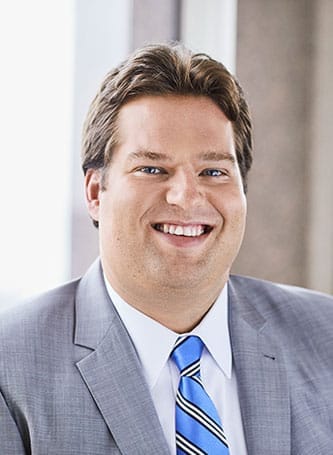Section 4-401 of the Uniform Commercial Code provides that a bank may charge the account of a customer if it is presented with a “properly payable” check or other item “authorized by the customer,” and “in accordance with any agreement between the customer and the bank.” Section 4-401 also provides the basis for forged check liability in the case in which a plaintiff alleges that a bank is liable for charging her for a check that was not properly payable to a third party. UCC Section 4-111 provides that “an obligation, duty, or right” stemming from Article 4 must be commenced within three years from the time the cause of action accrues.
In a recent case in the U.S. District Court for the Eastern District of Pennsylvania, the personal representative of a deceased woman’s estate brought a suit against the decedent’s bank, Wells Fargo, which had honored forged checks of more than $388,000 drawn on her account in the four years prior to her death. Faber v. Wells Fargo Bank, No. 15-00191, 2015 WL 1636967 (E.D. Pa. Apr. 13, 2015). The decedent had suffered from Alzheimer’s dementia in the four years preceding her death in April 2012 when the forged checks were drawn on her account, and the personal representative of the estate sued Wells Fargo under both the Pennsylvania version of UCC Section 4-401 and Pennsylvania’s consumer protection statute. Id.
However, the lawsuit was not filed until May 12, 2014, and Wells Fargo argued that the three-year statute of limitations barred all UCC Section 4-401 claims based on checks negotiated prior to May 12, 2011. Id. at *2. The Court agreed with the bank, holding that a cause of action under Section 4-401 accrues at the time each individual check is paid by the drawee bank. Id. The plaintiff invoked the so-called “discovery rule”–which can provide that an inherently unknowable cause of action does not begin to accrue until the plaintiff knew or should have known of the underlying facts related to such a cause of action–to argue that the statute of limitations did not begin to run until the personal representative discovered the forgeries after the decedent passed away in 2012. Id. The Court rejected this argument, noting that “[a]bsent a bank’s fraudulent concealment, however, the discovery rule does not toll the statute of limitations, for Section 4-401 claims.” Id. at *3. The Court held that a plaintiff had to allege specific affirmative acts taken by a bank in order to establish fraudulent concealment; mere silence or lack of recognition of the forgeries was not sufficient to prove fraudulent concealment and toll the statute of limitations. Id. Further, the Court ruled that the decedent’s mental incapacity “cannot overcome the general principle that the discovery rule does not toll the statute of limitations for claims under § 4401.” Id. at *4. Thus, the Court employed the applicable statute of limitations and held that claims related to checks negotiated prior to three years before the filing of the lawsuit were time barred. Id.
The Court “recognize[d] that strict and mechanical application of the statute of limitations in the face of alleged mental incapacity may have severe consequences,” in cases such as Faber in which it prevented the recovery of monies for an estate which were undoubtedly procured out of the decedent’s bank account by fraud. Id. However, the Court countered that “strict application of UCC statutes of limitation promotes certainty in commercial transactions, a fundamental purpose of the UCC.” Id.
Faber is another case in a growing body of law in which the majority of courts have ruled that the discovery rule cannot toll the statute of limitations in UCC check fraud cases absent affirmative fraudulent concealment by a financial institution. Faber and related case law should provide added certainty for banks and financial institutions that customary statutes of limitation will apply in UCC check fraud cases except instances of active malfeasance by the bank or financial institution. Fitch Law Partners LLP will continue to monitor developments in this developing area of the law.
